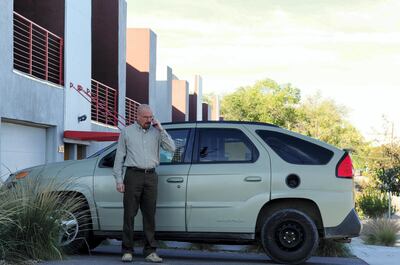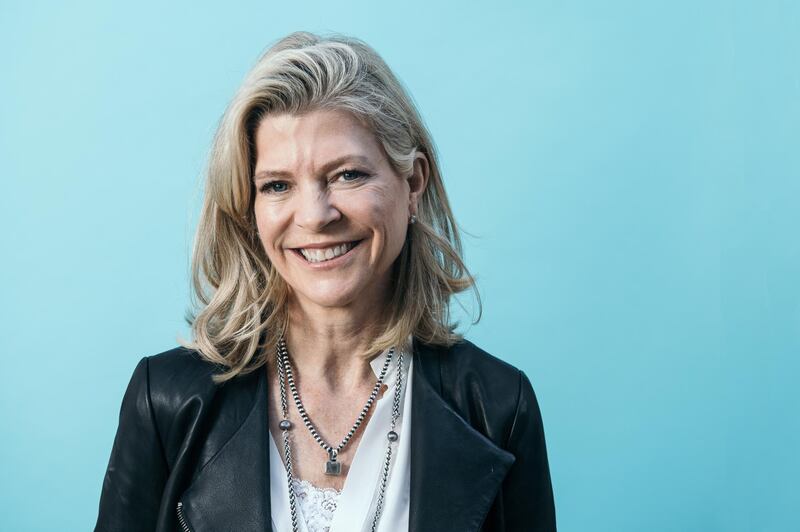Michelle MacLaren may not be a name that is immediately familiar to television audiences. The shows she has worked on as a director and producer, however, rank among the most successful ever produced. Titles like Breaking Bad, Game of Thrones, The Walking Dead and Westworld will be familiar to anyone with even a passing interest in popular culture.
In a career spanning almost 30 years, the six-time Emmy nominee has successfully attached herself to some genuinely epoch-defining shows. However, the amiable Canadian insists she’s no evil genius with a grand plot for furthering her career.
"There was no master plan," she says. "When we were doing Breaking Bad, at the beginning no one was watching, we were like the poor relation of Mad Men. We were developing creatively, but the studio didn't want to spend money because no one was watching."
MacLaren says it was around season 4 of Breaking Bad that she began to notice a change in tone from the people with the purse strings. "I said to one of the other producers ,'I'm getting less calls about going over budget,' and he said, 'Me too,' and that was when we realised that sales must be up. The show really didn't start to make it big until we were nearly finished, with season 6 [or season 5B as it's officially known]."
Although the early seasons of Breaking Bad may not have been hugely successful on initial screening, the show was one of the first to benefit from binge-viewing, as audiences sought to revisit earlier episodes on Netflix after the show ended on original home, AMC Networks, in 2013. MacLaren says the advent of Netflix and "binge-watching" has really changed the game for directors.

“It’s spectacular to get these 14-hour shows. You don’t have to think about things in that box. You can think of things in a much more unique way, really let the show evolve and let the character arcs develop. You’re not tied into a two-hour movie or an hour’s TV anymore, you can think of a project as four hours, 10 hours, even as maybe a five-year series.”
MacLaren says cheaper, improved, home electronics have also helped to transform TV from the poor relation of cinema. “The technology for watching at home has become much more sophisticated; some people have TVs as big as a cinema screen,” she says.
"That means that directors are now approaching TV with a much more cinematic approach; the demands are much higher and that's really exciting as a director. Shows like Game of Thrones, Breaking Bad, Westworld, it's really exciting. They're hiring filmmakers and letting us be filmmakers; we've moved away from the conventions of what defines conventional TV."
Using her own work as an example, MacLaren cites the One Minute episode of Breaking Bad as a creative high point. "I really played with the cinematography and camera speeds and I was really worried that no one would get it, that they'd think I was crazy, but the response we got was incredible, none of us could have imagined," she says. "Sometimes you do these things and it works, sometimes it doesn't. Creatively it's great to be able to do that."
MacLaren visited the Dubai International Film Festival last month as a guest of OSN, the regional pay-TV provider, which screens the latest hit shows from the United States, including Game of Thrones and the Breaking Bad sequel Better Call Saul. The director admits she hadn't expected her work to have so many fans in the region.
“I was quite surprised when they asked me to talk because of the type of shows that I do,” she says. “I know there are certain countries where certain things aren’t allowed, so to find there was a channel out here that shows all the HBO shows was unexpected.”
________________
Read more:
[ In lifting the cinema ban, Saudi Arabia gives voice to people's stories ]
[ It’s a wrap, as Diff 2017 looks forward to new horizons ]
[ Oscar nominee Jim Sheridan: Arab film makers should stop chasing Hollywood ]
________________
Having now witnessed the region first-hand, she seems to have been won over, although with a packed schedule of talks and interviews she admits she wasn’t able to catch as many films as she would have liked.
“I know there are great filmmakers in the Middle East,” she says. “I managed to catch a few things at the festival, but with the panels, the promotions, the press, I couldn’t catch nearly as much as I wanted, so I’m definitely going to have to catch up at home.”





